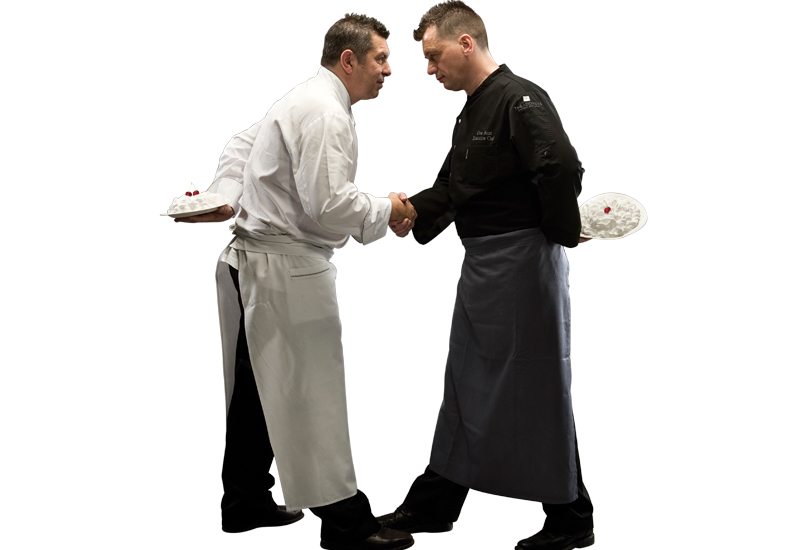“For something as delicate as, say, the wedding cake category, I think transportation can be a worry,” says Fairmont’s Rodrigues.
“The decorations are so fragile and take so long to create that it is always nerve-wracking transporting it to the venue; you just have to be very careful and pray it arrives in one piece.”
Another challenge with pre-prepared competitions items, agree Rodrigues and Al Bustan Rotana’s Prudhomme, is the time competitors must put in.
“You basically write off your social life for a month beforehand,” admits Rodrigues. “You are still working your normal shifts as well, so it’s up to you to put in the time creating your competition piece outside of working hours — which means you end up spending a lot of time in the kitchen.”
Prudhomme adds: “Many chefs will know what they want to produce well in advance, which essentially means they start work well before the actual competition date. They eat, sleep and breathe what they do. It takes a lot of work; no one takes days off. So competing requires real determination and a lot of patience.”
Another challenge, points out Prudhomme, is the pressure on the competitor — not from their seniors, but from themselves.

Advertisement
“Entrants put a lot of pressure on themselves; I know our chefs who compete do,” he admits. “They truly want to win. But if they fail and do not get the gold, they are not deterred; they will simply aim for the following year, or perhaps try different area of competition. There’s always some new challenge to aspire to.”
In addition to these issues, there is of course the dreaded stage fright.
“To go from an environment where you’re cooking in a commercial kitchen and you’re surrounded by your friends and colleagues to a competitive forum, where you’ve got the public, people from the industry and executive chefs from other properties can be pretty daunting,” points out Southern Sun’s Haviland. “You just have to hope that they can concentrate that nervous energy into showing what they can do.”
Can the Middle East compete?
The regional F&B industry is one which has really only gained worldwide recognition over the past decade, which is paltry experience in comparison to other major global culinary competition hubs.
So how does the standard of competition here measure up against the rest of the world?
Having seen the competition from the inside, Fairmont’s Rodrigues asserts that Dubai’s Salon Culinaire is “very impressive”.
The Address’ Faust adds: “I’ve only been in Dubai for a year and already I am very impressed with the nature and type of competitions I’ve witnessed here, particularly their organisation and set-up.
“I believe they can definitely be compared to any competition in Europe and Asia, although I suspect the exposure received is not as high as for shows held in the US or Europe,” he adds.
A competitive future
There are some strong supporters of the Middle East’s competitive chef events — but is there still some room for improvement?
“I think we can always do more on the competition front,” asserts Al Bustan Rotana’s Prudhomme.
“Maybe something for female chefs, as there are the best judge of skill and are not done enough,” he continues. “We see so many events involving culinary art, but not enough actual on-the-spot cooking. We need to look at that as a region.”
Southern Sun’s Haviland is even more specific. “ are more and more of them in this region and I don’t think we support them enough.
“And for me, live cooking competitions are the best judge of skill and are not done enough,” he continues. “We see so many events involving culinary art, but not enough actual on-the-spot cooking. We need to look at that as a region.”









 Search our database of more than 2,700 industry companies
Search our database of more than 2,700 industry companies









